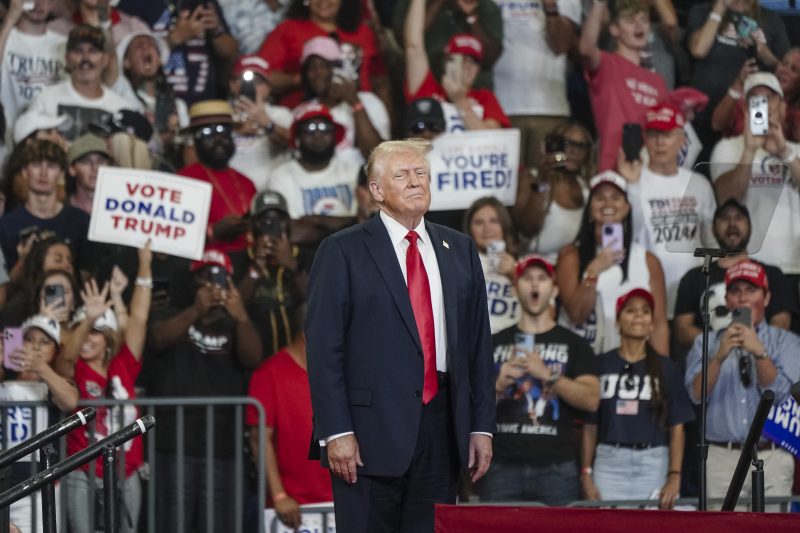In a surprising turn of events, former President Donald Trump took center stage at a rally in Atlanta, where he targeted Republican Georgia Governor Brian Kemp in a series of scathing attacks. The rally, which was attended by a passionate crowd of supporters, saw Trump unleashing a barrage of criticism against Kemp, accusing him of betraying the Republican Party and even questioning his loyalty to the conservative cause.
One of the key highlights of Trump’s speech was his sharp criticism of Kemp’s handling of the 2020 presidential election in Georgia. Trump claimed that Kemp had failed to do enough to investigate alleged irregularities and fraud in the election, which he believes cost him victory in the state. The former president went as far as to call Kemp a disaster and a fool for not standing up for what he sees as the truth.
Another central theme of Trump’s attack on Kemp was the issue of illegal immigration. Trump accused Kemp of being soft on immigration enforcement and allowing sanctuary cities to thrive in Georgia, a claim that Kemp vehemently denies. Trump’s rhetoric on immigration has long been a cornerstone of his political platform, and he made sure to emphasize this point in his criticism of Kemp.
In addition to these policy disagreements, Trump also made personal attacks on Kemp, calling him ineffective and weak as a leader. Trump’s tough language and confrontational style have been hallmarks of his political persona, and he did not hold back in his criticism of Kemp at the Atlanta rally.
The rift between Trump and Kemp reflects the larger divisions within the Republican Party between the pro-Trump faction and more traditional Republicans. Kemp, who has been a staunch supporter of Trump in the past, now finds himself in the crosshairs of the former president’s ire, highlighting the challenges faced by GOP leaders navigating the post-Trump political landscape.
As the 2022 midterm elections approach, the feud between Trump and Kemp could have significant implications for the Republican Party in Georgia and beyond. Trump’s continued influence within the party means that his attacks on Kemp could sway voters and potentially shape the outcome of key races in the state.
The rally in Atlanta served as a dramatic stage for Trump to publicly air his grievances against Kemp, leaving many observers wondering about the future of the Republican Party and how it will reconcile the competing interests and visions of its members. Trump’s relentless attacks on Kemp are a reminder of the volatile dynamics at play within the GOP and the enduring influence of the former president on the party’s direction.

